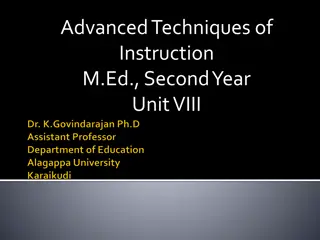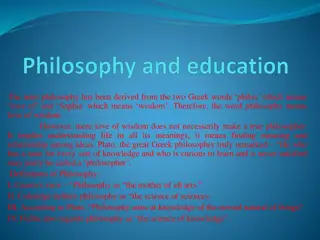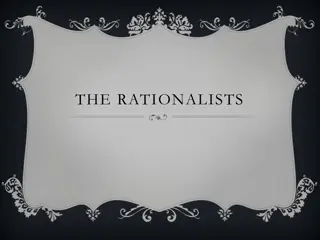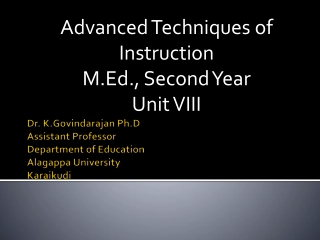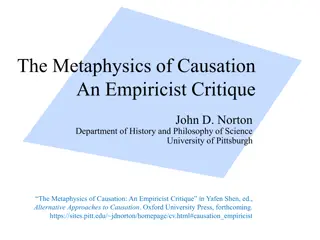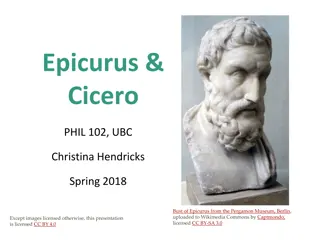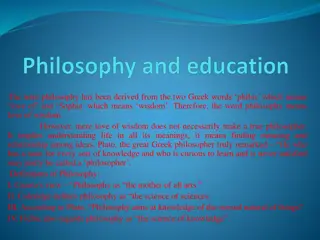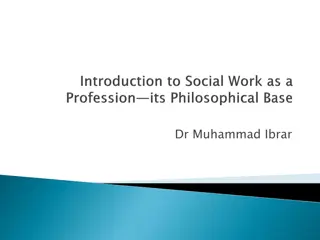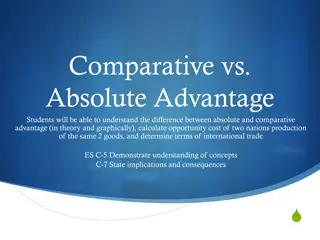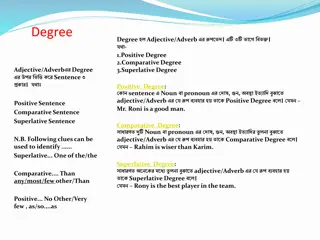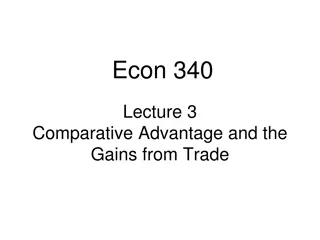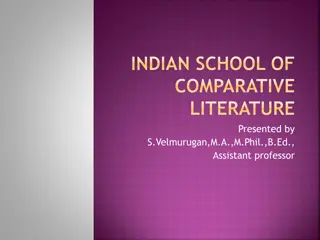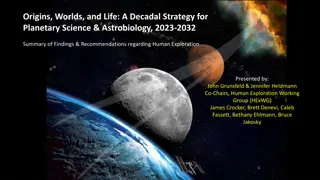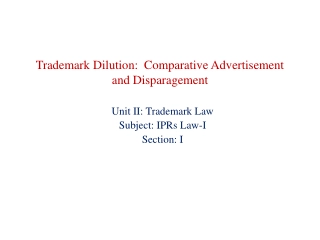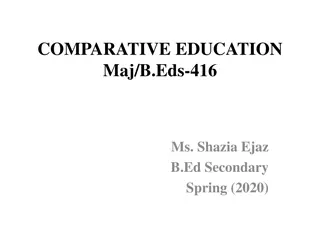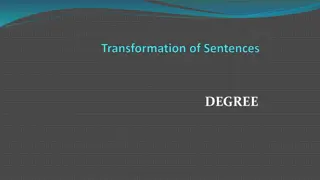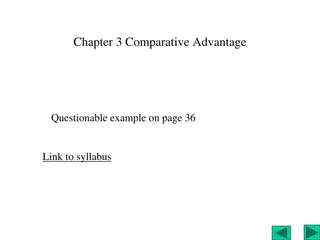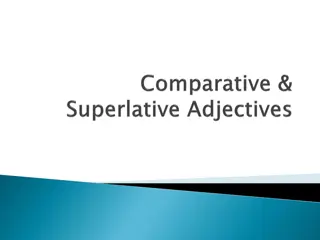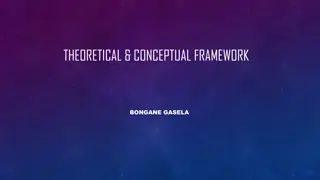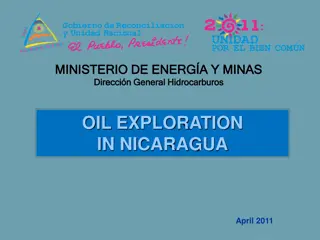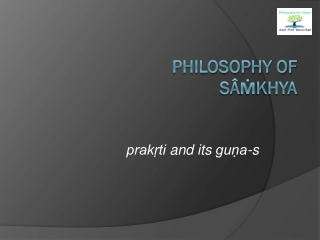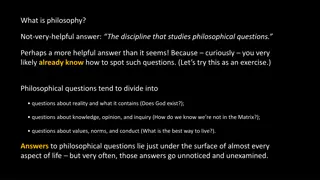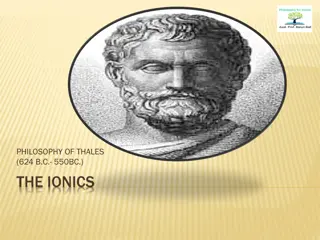Rationalism vs. Empiricism in Philosophy: A Comparative Exploration
Rationalism and empiricism are contrasting philosophical theories regarding the sources of knowledge. Rationalists emphasize reason and deductive logic, asserting that certain principles are inherently true, while empiricists argue that knowledge primarily comes from sensory experience and observation. This article delves into the key concepts of rationalism and empiricism, discussing the viewpoints of notable philosophers such as Descartes and Plato.
Download Presentation

Please find below an Image/Link to download the presentation.
The content on the website is provided AS IS for your information and personal use only. It may not be sold, licensed, or shared on other websites without obtaining consent from the author. Download presentation by click this link. If you encounter any issues during the download, it is possible that the publisher has removed the file from their server.
E N D
Presentation Transcript
Theory of Architecture Fourth Stage Architecture Engineering Department
Rational Philosophy rationalism is defined as a methodology or a theory "in which the criterion of the truth is not sensory but intellectual and deductive (From Whole to Parts). rationalists asserted that certain rational principles exist in logic, mathematics, ethics, and metaphysics that are so fundamentally true that denying them causes one to fall into contradiction. concepts and knowledge are gained independently of sense experience.
A theory that reason is in itself a source of knowledge superior to and independent of sense perceptions. A view that reason and experience rather than the nonrational are the fundamental criteria in the solution of problems What is Rationalism? A FUNCTIONALISM sense theyConcepts are called a priori ( from the former ) if they can be applied independently of experience
Rationalists Descartes 1596- 1650 a French philosopher I think therefore I am Ren Descartes Astatement bythe seventeenth- centurywhenRen Descartes foundthat he couldnotdoubtthat he himself existed, as he was the onedoingthe doubting inthe first place. InLatin (the language in which Descartes wrote), the phrase is Cogito, ergo sum Plato 428-347 B.C. a philosopher in Ancient Greece
What is Empiricism? term empiricism comes from the ancient Greek wordempeiria, experience. In philosophy, empiricism is a theorythat states that knowledge comes only or primarily fromsensory experience the best way to gain knowledge is to see, hear, touch, or otherwise sense things directly Empiricism is a fundamental part of the scientific methodthat all hypotheses and theories must be tested against observations of the natural world rather than resting solely on a priorireasoning.
Empiricism Philosophy empiricists may argue that traditions (or customs) arise due to relations of previous sense experiences Concepts are said to be a posteriori (Latin: from the latter ) if they can be applied only on the basis of experience. In order to build a morecomplexbody of knowledge from these direct observations,induction (makinggeneraliz ationsbased on individual instances)
David Hume 1711- 1776 a Scottish philosopher Empiricists Hume is best known today for his highly influential system of philosophical empiricism the mind is literally blank or empty prior to experience Aristotle 384 322BC Along withPlato, he is considered the "Father of Western Philosophy".
Induction and Deduction An example of Induction Socrates is aman Socrates is mortal therefore, all men are mortal An example of Deduction All Greeks aremen, all men are mortal Therefore, Socrates is mortal.
Pragmatism is a philosophical movement that includes those who claim that an ideology or proposition is true if it works satisfactorily. Pragmatism originated in the United States during the latter quarter of the nineteenth century. Pragmatism The term pragmatism was first used in print to designate a philosophical outlook when William James (1842-1910) pressed the word into service during an 1898 address entitled Philosophical Conceptions and Practical Results, delivered at the University of California (Berkeley). The wordpragmatismis derived from the Greek pragma( action, )
John Dewey (1859 - 1952) anAmerican philosopher, whose ideas have been influential in education and social reform. His wide-ranging writings had considerable impact on American intellectual life for a half-century Pragmatic Philosopher


